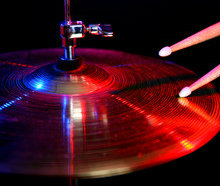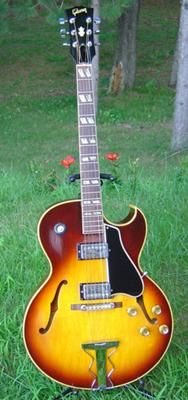What type of wood is best for drums?
I'm buying a drumset. It's my first. What type of wood is best for me? What type of wood does (or is good for) what? Is one particular wood better for recording rather than just playing for fun or playing live? Is one wood good for two of the three or all three? I guess I am looking for all three... a well rounded drumset that excels in recording, hobby, and live. What wood should I look for? I've also seen mixtures of woods such as birch/bubinga. Is a particular mixture maybe what I am looking for? I apologize for the bombardment of questions, but I would love to hear your input.
ANSWER
Hi--
Congrats on buying your first drum set. It is good that you are doing your research before buying.
I think that the different types of wood all have their strong points and that your choice will depend more upon the SOUND that you are after than the particular application (studio, live, etc.).
Here are some ideas for you:
In general, the harder the wood, the better it sounds. The harder and more dense a material, the more evenly it will vibrate. Most drum shells are made of Maple, Birch, or Lauan.
Lauan is the softest of these three woods and is also the least attractive. It is used in the production of low-end drums and is usually covered with plastic rather than a spray finish. This is the type of wood that most companies use for their "Mahogany" shells.
Maple and Birch: These are harder woods and are used to make the more expensive high-end drums. Both are attractive and produce a good sound.
Birch tends to boosted high frequencies, slightly reduce mids, and a have a good low end punch for applications requiring extra presence and cut.
Maple slightly boosts lows with smooth mid and high frequencies for all around applications.
Many people describe Maple as being "warm" and even in its frequency response. Birch is often described as "bright," because it produces more high end than Maple.
Walnut is gaining attention because it is dense,heavy, and very hard. It resonates well in the lower register because of its density and weight. Its hardness provides brightness that is said to surpass Maple or Birch. Because of its versatility, some say that it is perfect for recording.
African Bubinga is very hard and gives a bright delicate sound.
A far as combinations, you can judge for yourself by comparing the characteristics of the woods in question. It is difficult to comment without knowing the exact wood combinations and how mthey are combined in the construction.
Finally--my advice is that you play any ndrums that you are thinking of buying so that you can judge for yourself.
Hope this helps--
Best Wishes,
Lynne
Comments for What type of wood is best for drums?
|
||
|
||




